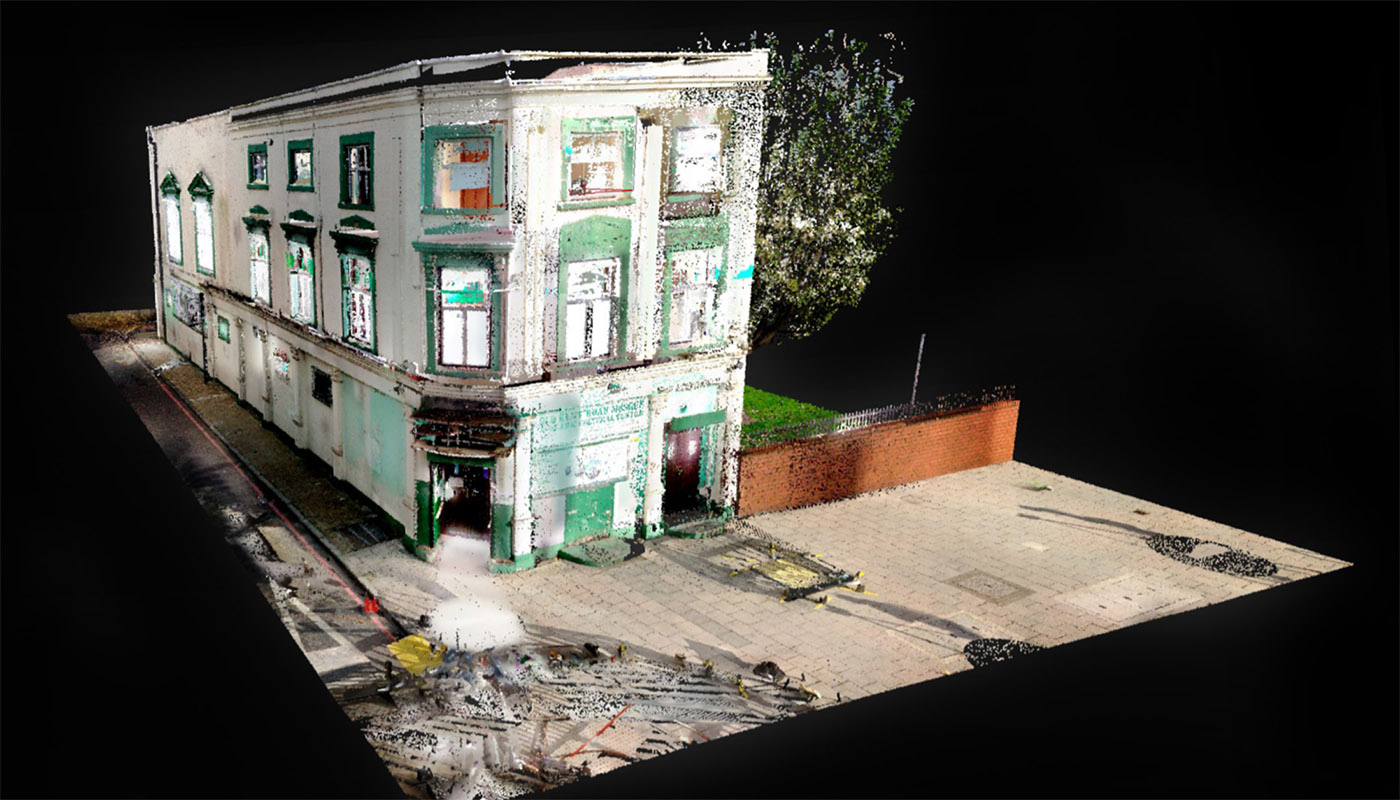On Tuesday 21st March 2023, Virtual Assembly opened to the public in Ambika P3, the exhibition showcased a series of immersive architectural models depicting the former Old Kent Road Mosque in Southwark. These models were brought to life through large-scale projections, offering an interactive experience for the audience. Started in 2020, the exhibition formed the second- iteration of a collaborative project directed by CREAM researcher and senior lecturer, Julie Marsh. Alongside the exhibition, the opening event was accompanied by an artist talk with Julie Marsh and a panel discussion with members of Old Kent Road Mosque congregation chaired by architect and curator Shahed Saleem.
The exhibition opening attracted over 60 members of the congregation, who eagerly explored the interactive models and provided valuable feedback and responses to the work. As one congregation member commented:
“My son has never had the experience of walking into this mosque. It’s heart-breaking from a certain perspective but this artwork will keep it alive for years and years and years to come. So, they can see where we came from and what we experienced and hopefully we can build on those strong memories and bonds for our kids and the future mosque”.
Architect and curator, Shahed Saleem, reflected on the significance of the project:
“Virtual Assembly in P3 was a powerful and thought-provoking exhibition. Seeing the projections illuminating the cavernous space at such a scale was a very spatial and sensual experience. The viewer felt immersed in the buildings and felt them as powerful and significant spaces; the method of display gave them a renewed status as highly important places of architectural and social history. To be able to engage with the digital model added a further layer of agency for the viewer and furthered new and experimental practices of collaboration that lie at the heart of the project”.
Feedback from the exhibition is to play a vital role in shaping the final iteration of the research and the audience were invited to offer their suggestions. As one congregation member commented: “In my mind, it would be nice to have some tangible ways to leave feedback in person so people who do have an emotional connection and want to add to the storytelling can do so.” This feedback and others like it, will be essential in developing the final iteration of the project which will be presented through a web-based platform for MANUK.
The exhibition opening attracted over 60 members of the congregation, who eagerly explored the interactive models and provided valuable feedback and responses to the work. As one congregation member commented:
“My son has never had the experience of walking into this mosque. It’s heart-breaking from a certain perspective but this artwork will keep it alive for years and years and years to come. So, they can see where we came from and what we experienced and hopefully we can build on those strong memories and bonds for our kids and the future mosque”.
Architect and curator, Shahed Saleem, reflected on the significance of the project:
“Virtual Assembly in P3 was a powerful and thought-provoking exhibition. Seeing the projections illuminating the cavernous space at such a scale was a very spatial and sensual experience. The viewer felt immersed in the buildings and felt them as powerful and significant spaces; the method of display gave them a renewed status as highly important places of architectural and social history. To be able to engage with the digital model added a further layer of agency for the viewer and furthered new and experimental practices of collaboration that lie at the heart of the project”.
Feedback from the exhibition is to play a vital role in shaping the final iteration of the research and the audience were invited to offer their suggestions. As one congregation member commented: “In my mind, it would be nice to have some tangible ways to leave feedback in person so people who do have an emotional connection and want to add to the storytelling can do so.” This feedback and others like it, will be essential in developing the final iteration of the project which will be presented through a web-based platform for MANUK.







